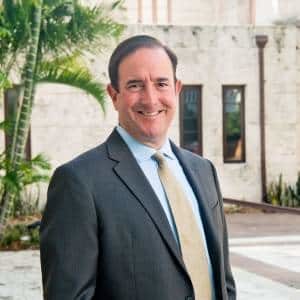Disturbing allegations have emerged involving James Tellis, 27, a former dean of students at IDEA River Bluff Charter School located at 2354 University Blvd N, Jacksonville, FL 32211. According to arrest records, Tellis has been charged with multiple felonies, including sexual battery and soliciting a child via computer, stemming from an alleged sexual assault of a minor during the 2023/2024 school year. At the time, Tellis was an English teacher at a KIPP Jacksonville Public School, according to News4Jax.
Police records reveal that on November 15, 2024, the victim, who was either 11 or 12 years old when the alleged incident occurred, disclosed the details to law enforcement. The student reported that Tellis used Instagram to offer bribes, such as food and tutoring, before leading them into an empty room where the abuse took place in March of that school year. The victim also stated that Tellis later sent them $45 via Cash App and attempted to discuss the incident, but they ceased communication with him.
Weeks after the victim came forward, police supervised a message exchange between the victim and Tellis on Instagram. Reports indicate Tellis responded promptly and engaged in conversations, some of which included discussions about the alleged assault. Investigators noted that Tellis utilized Instagram’s "Vanish Mode" feature, which erases messages after they are read, complicating evidence collection. However, authorities successfully retrieved a significant portion of the exchanges, which were submitted as evidence.
Statements from arrest records indicate that Tellis acknowledged past inappropriate comments during these conversations and expressed continued interest in engaging in similar activities. On December 2, 2024, police arrested Tellis, who claimed his Instagram account had been hacked and suggested multiple individuals, including his wife, had access to it. However, officers reported inconsistencies in his statements, particularly about the use of "Vanish Mode."
Investigators uncovered further concerns after analyzing Tellis' Instagram data, which included CyberTips submitted by Meta to the National Center for Missing and Exploited Children. These tips referenced possible exploitation of three female minors (ages 11-17) and voyeurism involving two boys (ages 10-13). Authorities emphasized that these claims remain unverified but are under active investigation.
IDEA Public Schools, where Tellis was recently employed, confirmed his immediate termination following his off-campus arrest. A spokesperson stated that there is no evidence the incident involved their students and reaffirmed their commitment to student safety. KIPP Jacksonville Public Schools, where Tellis worked during the time of the alleged assault, also pledged full cooperation with law enforcement.
This case has raised serious concerns among parents, educators, and the broader community as police continue to investigate the allegations. Tellis currently faces charges of sexual battery, inappropriate conduct with a student, and unlawful use of communication devices. Authorities are urging anyone with additional information to come forward.

When a trusted educator is accused of harming a child, the impact on families is profound. Beyond the emotional toll, questions often arise about how to hold both the individual and the institution accountable. Florida child abuse attorney Michael Haggard, experienced in handling teacher sex abuse cases, offers guidance on the steps families can take to seek accountability and protect others from similar harm.
Editor Darla Medina: Cases like this one involving a teacher accused of abusing a student are deeply unsettling for families. What legal options are available to them?
Attorney Michael Haggard: Families of abused children have several legal avenues they can consider. Beyond pursuing criminal charges against the perpetrator, they may also file civil lawsuits against the individual and, in some cases, the institutions involved. Schools have a duty to provide a safe environment, so if negligence played a role—such as failing to properly screen or supervise the employee—the institution could be held accountable.
Medina: How can families ensure their case is properly handled?
Haggard: The first step is to work with law enforcement and provide any evidence that helps build the criminal case. Simultaneously, consulting an attorney experienced in abuse cases is critical. An experienced attorney can help uncover systemic failings, such as inadequate background checks or ignored warning signs, which may have allowed the abuse to occur. This not only supports the victim but can also drive meaningful changes to prevent future incidents.
Medina: What would you say to parents who feel overwhelmed by the process?
Haggard: It's completely understandable to feel that way, but they don't have to face this alone. There are legal professionals, counselors, and advocacy groups ready to support them every step of the way. The path to accountability and healing requires persistence, but it’s possible to achieve both.
If your family has been affected by abuse, you don’t have to face it alone. Legal action can provide accountability, support, and a path to healing. Our team is here to help you navigate this challenging time with compassion and expertise. Contact us today for a free consultation and let us guide you toward the justice you and your loved ones deserve.
 info@legalherald.com
info@legalherald.com